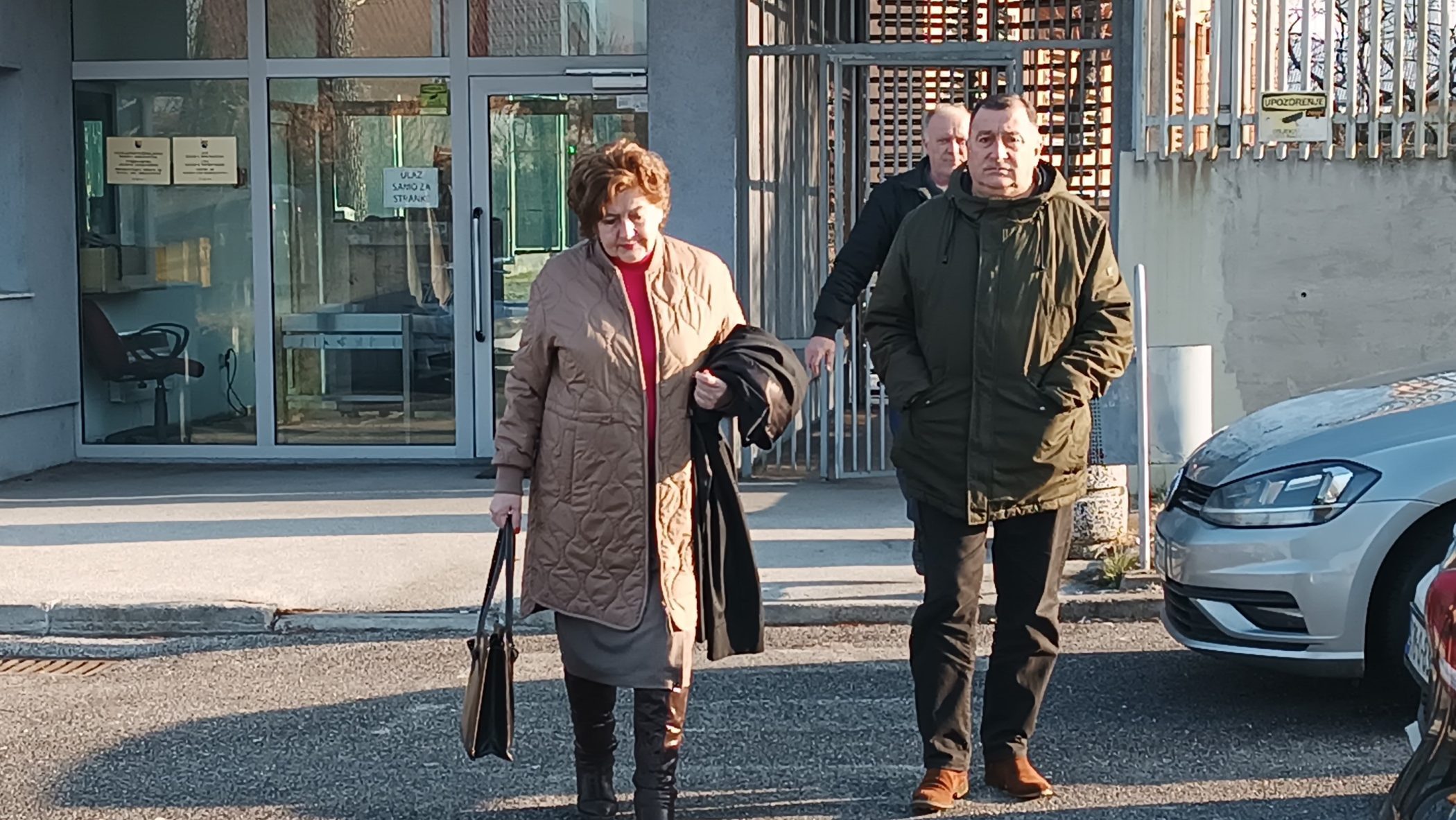Testifying at the trial of the Bosnian Serb Army’s former Zvornik Brigade commander Srecko Acimovic on Wednesday, witness Stjepan Mitrovic said he worked with the brigade’s communications centre in Karakaj in July 1995.
Although he was a soldier-signalman, he said he heard about the army’s occupation of Srebrenica and the captured Bosniaks from other soldiers and neighbours.
“I heard a big group of captives from Srebrenica would be brought to Zvornik, but I was not involved in organizing it. I never saw the captives at all,” Mitrovic said.
He said he heard that captives were held in school buildings in Pilica, Perkovici and Rocevic in the Zvornik municipality, but did not know who was responsible for them.
Prosecutor Ibro Bulic said that the witness’s statement during the investigation said that members of the ‘Nesalomljivi’ ‘Indestructibles’ unit, who were commanded by Srecko Acimovic’s brother Beli, were active in Rocevic.
Mitrovic explained that he heard this from his neighbours but assumed they were just guessing.
He said however that he knew that the Zvornik Brigade military police participated in guarding captives from Srebrenica in Orahovac.
The witness said he heard about the execution of captives, but only those who were being held in Branjevo.
He said he knew defendant Srecko Acimovic, adding he was the commander of the Battalion in Rocevic and villages near Lokanj, where the witness lived.
Acimovic is charged with taking Srebrenica residents from a school building in Rocevic in the Zvornik municipality to the banks of the Drina river in Kozluk, where they were killed, acting on orders issued by the Zvornik Brigade command and the Main Headquarters of the Bosnian Serb Army in July 1995.
The indictment alleges that from July 14 to 16, 1995, Acimovic deliberately offered assistance to members of a joint criminal enterprise whose aim was to detain and kill able-bodied Bosniak men from Srebrenica.
Also on Wednesday, at the trial of four former policemen for wartime crimes in the Capljina municipality, prosecution witnesses testified about a police operation in the village of Celjevo in July 1993.
Witness Niko Bunoza was one of the policemen who left the police station in Capljina in order to participate in the operation aimed at “capturing commandos and safeguarding the area”, he said.
He said he did not see defendant Nikola Zovko, the chief of the police station in Capljina, before or after the operation.
However he did see defendant Petar Krndelj, who was his commander.
“At that time he and I were on the frontline in Santiceva Street in Mostar. We came home on leave, but they called us to go to Celjevo at around 2am. Krndelj told us we were going to arrest some commandos,” the witness said.
Bunoza said Krndelj deployed them on an embankment near the village, facing an unknown enemy military group, and that another police chief, Zeljko Arar was also present.
“Prior to the shooting, Krndelj or Arar urged someone by megaphone to surrender. After that I heard shooting that lasted a short time. I did not fire one single bullet. It all lasted less than an hour. After that, we heard someone telling us by megaphone that the operation was completed,” Bunoza said.
The witness said he went home after the operation, changed his clothes and returned to Mostar with Krndelj. A month or two later Krndelj told him that the Veledar brothers had gotten killed in the operation in Celjevo.
“I heard that somebody was captured as well, but I don’t know who it was. I was not interested in finding out,” the witness said.
Nikola Zovko, the former commander of the police station in Capljina, Petar Krndelj, the former assistant commander, Kreso Rajic, the former commander of the Military Police Squad, and Ivica Cutura, a former worker at the police station in Capljina, are charged with committing crimes against Bosniak civilians in Capljina in July 1993.
The indictment alleges that police officers from Capljina led by Krndelj and Croatian Defence Council military policemen participated in an operation in the village of Celjevo on July 19, 1993, when three Bosniak civilians – the Veledar brothers – were killed.



